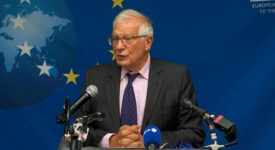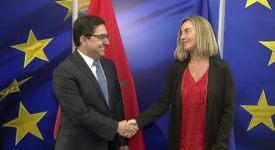Eva Entenmann, Bibi van Ginkel, Eelco Kessels and Mark Singleton (Netherlands Institute of International Relations – Clingendael)
The lately much-debated question of foreign fighters is not an entirely new phenomenon, even though it may not appear that way. In the past, we have seen many cases of individuals who decided to voluntarily leave their homes to join wars in foreign lands. However, the current situation is rather specific, particularly when it comes to the sheer numbers of these fighters but also the “ideals” those people are willing to risk their lives for. It is for these reasons why the security threat stemming from foreign fighters phenomenon is entirely justified and the related concerns legitimate. The international community is aware of these threats and thus has already proceeded to implement concrete measures.
The UN Security Council is not an exception. On 24 September, the top UN body adopted the so-called Resolution 2178, which has so far been supported by over 120 countries. This resolution calls on the individual states to impose stricter border controls and, most importantly, seek and, if appropriate, arrest these foreign terrorist fighters who are either returning from battle field or are heading there. An integral part of the strategy is the appeal on religious communities in individual countries that calls for more discussion and the prevention of expansion of extremist ideologies in the first place. However, the truth is that the Resolution actually does not provide for any constructive and concrete policy tools to deal with this old-new phenomenon.
On the one hand, this problem affects non-EU countries as well; however, on the other, it concerns the EU states more than others. The highest number of foreign fighters who left to fight in the Islamic State ranks originates in the EU-28 states and the free movement of persons in the Schengen area further increases the real danger of terrorist attacks. And it is for these reasons that it is very important for the Union to face this danger and, above all, it should do so with a unified position. First of all, it is essential that individual Member States cooperate within the European Union as much as possible, and that they jointly support those third countries, which are also threatened by foreign fighters. No country is capable of coping with this dangerous phenomenon and confront this threat as long as it stays isolated without making genuine effort to cooperate with others. The EU Member States ought to realize that rather than trying to devise and implement a short-term and ad-hoc approach, to effectively deal with the foreign fighters, they need to come up with a long-term and well thought-through strategy characterized by continuity and coherence.
(The study can be downloaded here)







